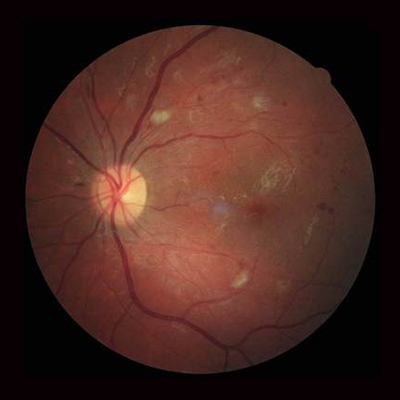
November is Diabetes Awareness Month, a perfect time to focus on how diabetes can impact your overall health — including your eyes. Diabetes is one of the leading causes of vision loss in adults, but the good news is that with regular eye exams and early detection, most diabetes-related eye conditions can be managed or even prevented.
How Diabetes Affects the Eyes
Diabetes can cause changes in the blood vessels throughout your body, including those in your eyes. Over time, high blood sugar can damage these delicate vessels, leading to a group of eye problems known as diabetic eye disease. The most common conditions include:
Diabetic retinopathy: Damage to the retina’s blood vessels that can lead to leakage, areas of ischemia and/or the growth of abnormal blood vessels which can result in blurred or distorted vision.
Diabetic macular edema: Swelling in the central part of the retina (the macula) that affects central vision.
Glaucoma: Increased eye pressure that can damage the optic nerve and impact side vision.
Cataracts: Clouding of the eye’s natural lens that can develop earlier in people with diabetes.
Many of these conditions start silently — meaning you may not notice any symptoms until the disease has progressed. That’s why early detection through regular eye exams is so important.
The Importance of Regular Dilated Eye Exams
A comprehensive dilated eye exam allows your eye doctor to look closely at the health of your retina and optic nerve, even before you experience vision changes. For patients with diabetes, we recommend a yearly eye exam to catch problems early, when treatment is most effective.
At Bensenville Eye Care, we use advanced imaging technology such as retinal photography and OCT (Optical Coherence Tomography) to detect even the smallest changes in your eye health over time. These tools help us monitor and protect your vision more effectively.
Taking Steps to Protect Your Vision
Managing your blood sugar plays a key role in maintaining healthy eyes. Here are a few steps that can help reduce your risk:
Keep blood sugar levels within your target range.
Schedule annual comprehensive eye exams.
Eat a balanced diet rich in leafy greens, fruits, and whole grains.
Avoid smoking, which increases the risk of eye disease.
Contact your optometrist if you notice blurred vision, spots, or sudden vision changes.
This November, Make Your Eye Health a Priority
If you have diabetes — or are at risk — make your eye health part of your overall health plan. Early detection and regular care can make all the difference in preserving your sight.
📅 Schedule your annual diabetic eye exam this month to take an important step toward protecting your vision for years to come.







